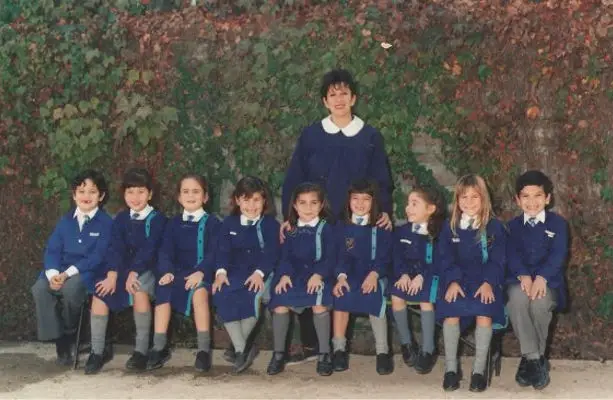Jonathan Dodd’s latest column. Guest opinion articles do not necessarily reflect the views of the publication. Ed
Back in the Nineteen-thrumpties a few hundred primary-school children were placed in my care for significant periods of time. I was a newly-qualified teacher, and I found myself being possibly the only male Infant teacher in the Inner London Education Authority, as was. This was in revolutionary times, when women were making a lot of noise about their rights, and the male establishment were being shocked by the first waves of Feminism. They still thought they could push it back in its box with unpleasant jokes and cartoons.
I can genuinely appreciate the problem, and the resentment, not just because women have for far too long endured the stupidity of men, but because I was suffering the mirror-image of that same set of attitudes. I was interviewed at a College of Education by a man who became rather fractious because he didn’t believe I, a man, might want to be a Primary School teacher. Luckily, in those days, nobody thought about the possibility that a male teacher might have other hidden impulses about children, the thought of which makes me shudder.
There’s nowhere you can go to the toilet
I discovered a lot during those years about how things work, and how people often say one thing in public and mean exactly the opposite. I arrived for my first job in a small Infant school in South-east London accompanied by an Inspector, because I was a rare beast. The ogreish head teacher, near retirement, was gushingly cordial about the benefits of having a male teacher on her staff, until the inspector left. Once he had driven off, she gave me a terrifying look. “There’s nowhere you can go to the toilet. You’d better talk to the caretaker about it.” That set the tone for my first year.
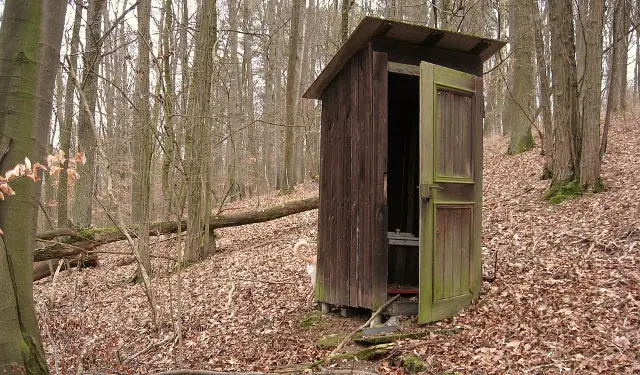
I had a happy few years teaching, but I never really fitted in. The system was far too rigid in so many ways, but far too loose in others. I disliked the way that good teachers were usually overlooked for promotion in favour of smooth talkers, because they were getting on with the job rather than schmoozing their way up the ladder. Most of all, I worried that children were not being given a proper curriculum, as I had been.
18 projects on volcanoes
So I left teaching. I missed the children, but I didn’t miss schools, and I didn’t miss teachers. My life took a few turns, and so did the educational system. I went on a trip to Norfolk with a group of children and two other teachers, and we had a wild time on the Broads. I took coachloads of children to The Natural History Museum and various other places, and everyone behaved reasonably, and I think they learned enough from their time with me not to ruin their life chances afterwards.

Back then we taught by projects. I once worked out that if a child moved a lot and had bad luck, he or she could end up doing 18 projects on volcanoes, or dinosaurs or the Romans, and nothing else. We got through masses of cardboard toilet rolls before pictures of Diana’s children coming out of school with their classwork models caused them to be banned for health and safety reasons. I mean the toilet rolls, not Royal children. I retain a great affection for toilet rolls and what you can make with them. I taught in three schools, and they just got on generally with the exercise of young minds and the basic skills.
A serial killer, rather than a slapdash dresser
I understand that schools are very different places nowadays. For instance, in my time there were no uniforms. The teachers and the children just turned up and got on with it. This was very refreshing to me, because my own school had been very keen on uniforms. I was given punishments twice for bad behaviour, and about a hundred times for uniform malfunctions. These included untied shoelaces, untucked shirts, loose ties, missing or too-jaunty cap, unshined shoes, and a host of other misdemeanours. All bad marks were clumped together, whether they were serious, as in fighting or wilful damage, or having a button undone, so at the end of each term my scorecard looked like I was a serial killer, rather than a slapdash dresser.
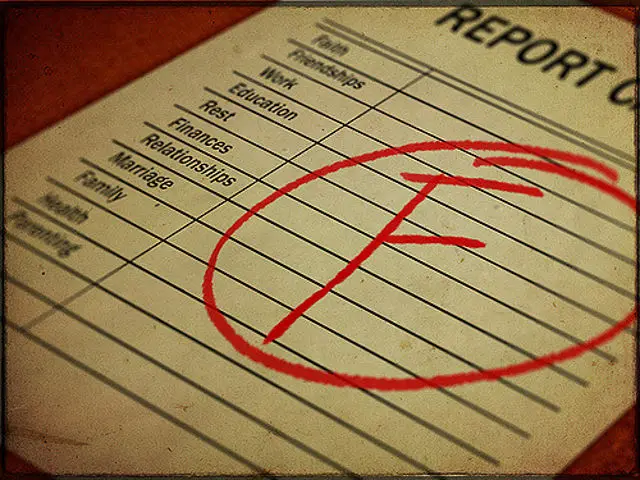
I might have minded less, or taken more pride in my appearance, if the uniform had been worth taking care of. I shall try to describe it. We had to wear black leather shoes with laces, in a ‘traditional’ style, which was viciously interpreted by various teachers. Grey socks. You’d think that would be simple, although I knew someone told off for having socks that were ’too grey’. Grey trousers with turn-ups. Anyone who knows children and the rate they grow understands that turn-ups are so much harder to be let down again and again as those young legs shoot up like bamboo.
It cost money that many parents struggled to find
That was the easy end of the uniform. We had to wear a shirt with thin blue stripes and no collar, and a separate white collar that attached front and back with studs. One short stud for the back, and a longer one for the front, because of all the holes it had to go through. Then a green and brown striped tie, and a brown tweed jacket, which was scratchy and immediately became shapeless and saggy as soon as you put it on. Above that we had to wear a red cap with the school motto.
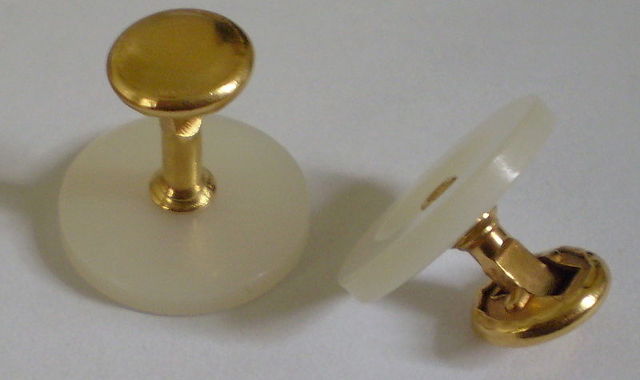
The worst thing about the uniform, even worse than its awfulness, was that it had to be bought from one particular shop, and of course it cost money that many parents struggled to find. Any uniform mishap became a crisis, and there were a lot of repairs, which, weirdly, were not covered in the dress code leaflet, so nobody could object. And, of course, there was the hair thing. Those were the days when you got your hair cut. No hairdresser ever asked you how you wanted it, because you just got your hair cut, and everybody looked the same.
They had just allowed the women to wear trousers
Young people were just beginning to ask questions about this, and a lot of trouble was brewing. Battle lines were being drawn up for a war that’s still raging about hair and clothes and social control. In those early days the control was still very much in the hands of those in authority, and teachers took it for granted that their word was law, even over your haircut. Very few people were openly rebellious, but a lot of them were beginning to feel rebellious. When I was a teacher there had been some giving way. At my teacher-training college they had just allowed the women to wear trousers, or slacks, as they called them then. I wasn’t told to shave off my beard, although they didn’t like it.
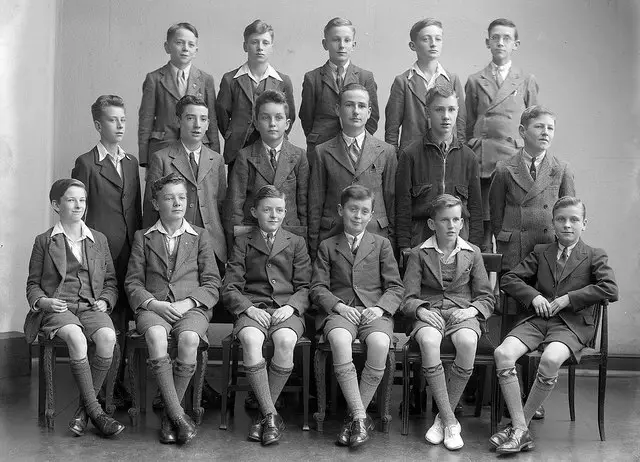
Schools in my time had decided that the development of the individual was paramount, and obviously, uniforms didn’t encourage that. It was important to give them as wide a range of experience as you could, and to encourage them to enjoy reading, or art, or movement, as well as just sticking to the basic skill. I rather liked that, not only because I agreed with the idea, but because of my own difficulties with the whole uniform idea. It seems like it couldn’t be more difficult nowadays, and I find myself astonished at the speed and completeness of the change.
Hordes of identikit children
Uniforms now seem to be universal, and all over the country hordes of identikit children trek from home to school and back in their easily-identifiable sets of clothes, which, I suspect, they wouldn’t choose for themselves in a million years, and which, I also suspect, wouldn’t be chosen by their parents. Schools have stopped being a part of the Education service of this country, and they’re now branded marketable product factories. They all stand or fall by the results they manage, and they seem to have gone in the completely opposite direction to the schools of yesteryear.
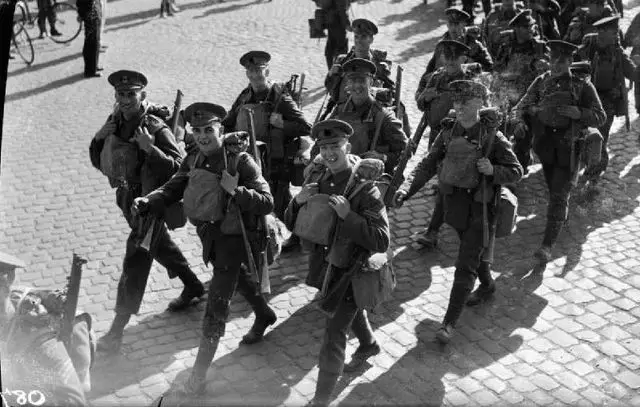
I’m not sure I like this development. I knew many people who were in the armed forces. I was too young to have to worry about national service, and most of the older people I knew were involved somehow in the Second World War, so they had plenty of experience of being in uniform in a world where uniforms were very important. I was struck between the difference between their attitudes about the war and the post-war National Service. Everyone in the war hated the uniform and wore it under duress, but they knew why they were there, so the uniform wasn’t the most important thing in their lives. It was just part of the discipline, like marching and NAAFI food.
Not to impose such things on their own children
I could hardly find anyone, though, who enjoyed National Service. There was no actual reason for doing it, and they resented spending a part of their lives, just when they were supposed to be getting on with their jobs or education, doing mostly make-work things, waiting for that glorious discharge. Occasionally some of them learned something useful, or they found some structure for their lives that hadn’t happened as children, or they were lucky in the postings they were sent to, but it wasn’t generally a success. I imagine they were very grateful afterwards to go to work, make their own decisions, and not to impose such things on their own children.
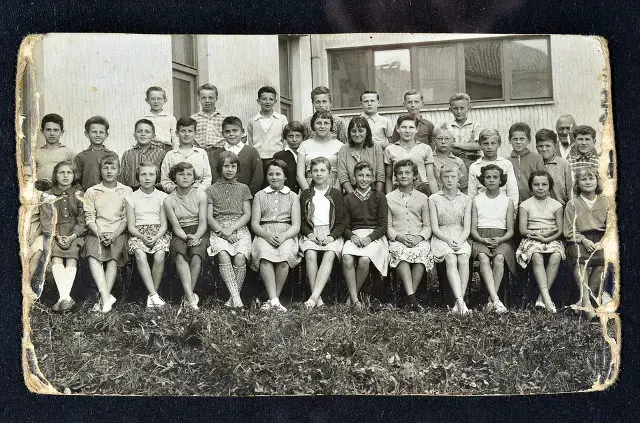
I’ve been hearing some disturbing stories lately, about children being banned from school because their trousers were the wrong shade of grey, or their haircut didn’t measure up to someone’s idea of what might be suitable, and I wonder how much they’ve forgotten about what they’re there to do. The purpose of a school is to teach children skills and information, to prepare them for life as adults, and to help them to make their own minds up about how they want to lead their lives.
Teaching is a vocation, not an industry
Teachers should be able to lead by example. Schools aren’t there to impose the idea that your school is better than other schools because all your pupils look identical. It’s not to give your shareholders more profits, and it isn’t to protect your own job. When I was concerned about not having enough curriculum when I was teaching, I never thought that we would soon be limiting the choices of our children because teaching fewer subjects is easier and cheaper, and certain subjects should be encouraged because they’re easier for getting good grades.

Fewer English people are learning any other languages than ever, just when we need to be getting out there in the post-Brexit world to trade with every other country. We don’t train enough doctors and nurses, so we have to steal them away from other countries. People don’t want jobs that involve uniforms, probably because they’ve been made to wear them for most of their childhood.
Our children’s chances of getting a real and useful job
Having said that, I acknowledge that there are some people out there who like uniforms, and who think children look nice in them. But we should not be making decisions, or giving the decision-making ability, to those who want to profit, instead of thinking about our children’s chances of getting a real and useful job. And all we’re doing is trying to impose uniforms, in the hope that nobody asks the real awkward questions.

I have a feeling that those who support school uniforms would be very angry if they were made to wear uniforms themselves.
If you have been, thank you for reading this.
Image: peregrineblue under CC BY 2.0
Image: Pixabay 2211438 under CC BY 2.0
Image: wsh1266 under CC BY 2.0
Image: amboo213 under CC BY 2.0
Image: Kan8eDie under CC BY 2.0
Image: nlireland under CC BY 2.0
Image: Imperial War Museum under CC BY 2.0
Image: matlachu on pixabay under CC BY 2.0
Image: mark6mauno under CC BY 2.0
Image: John Pavelka under CC BY 2.0

